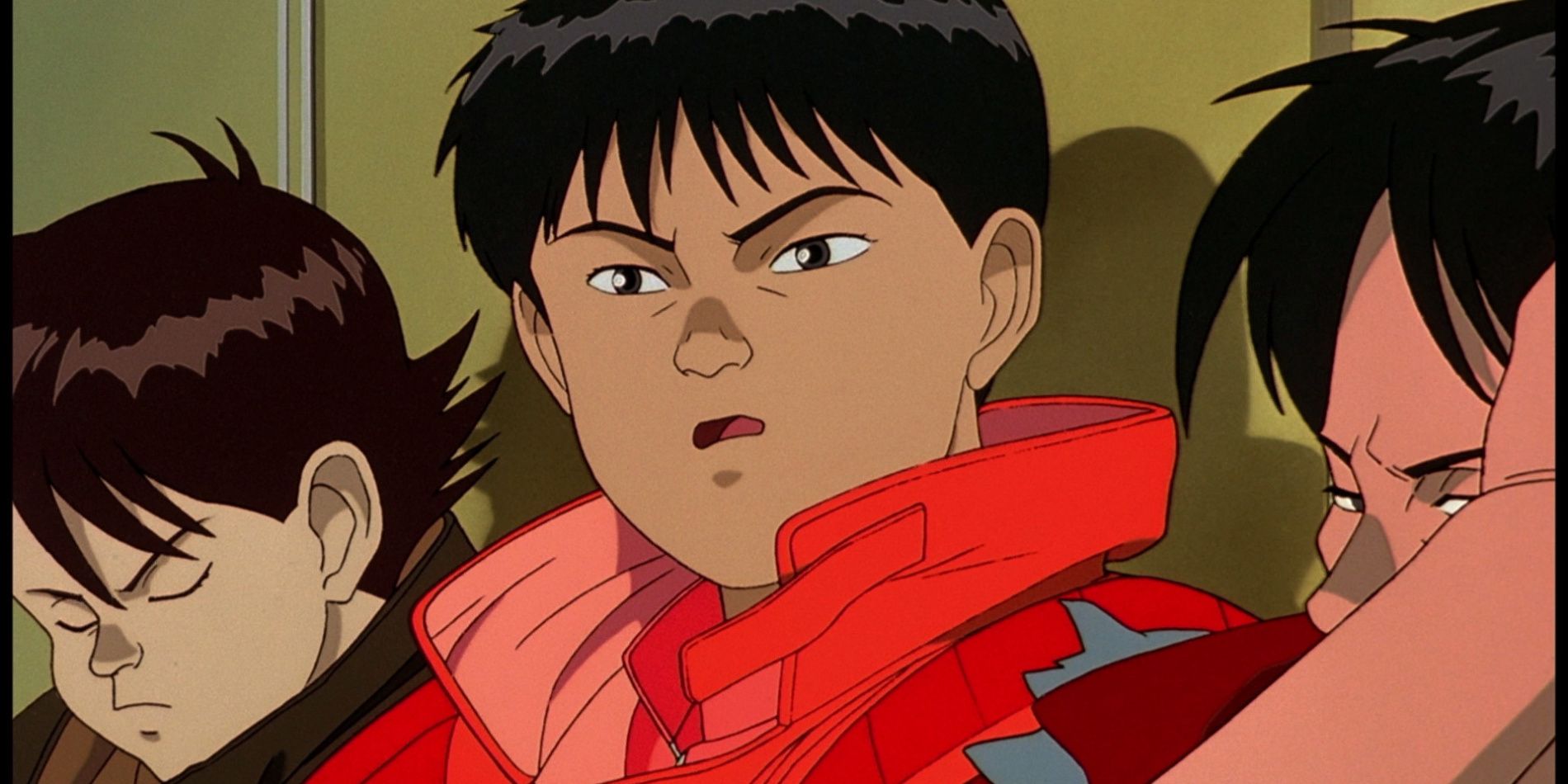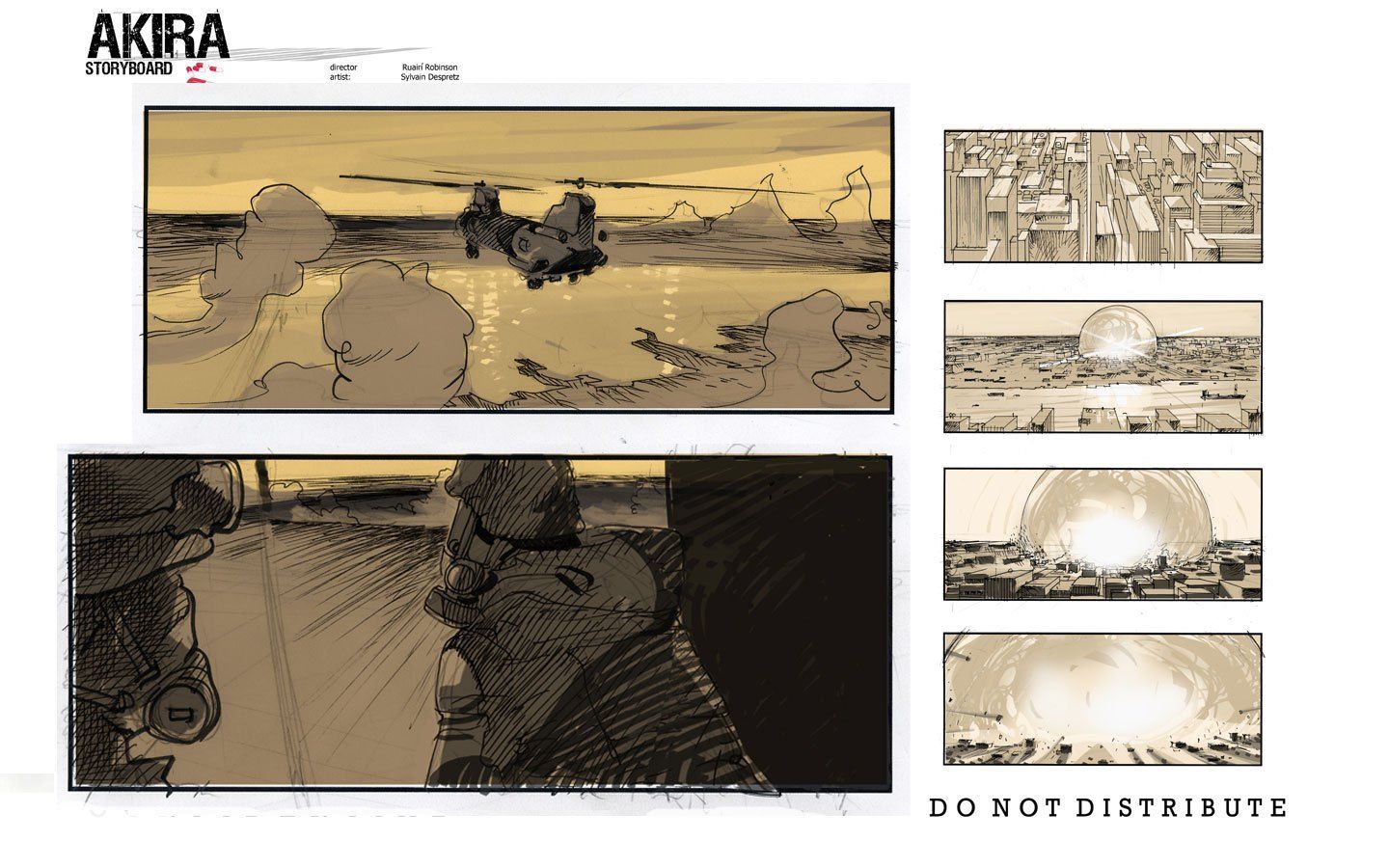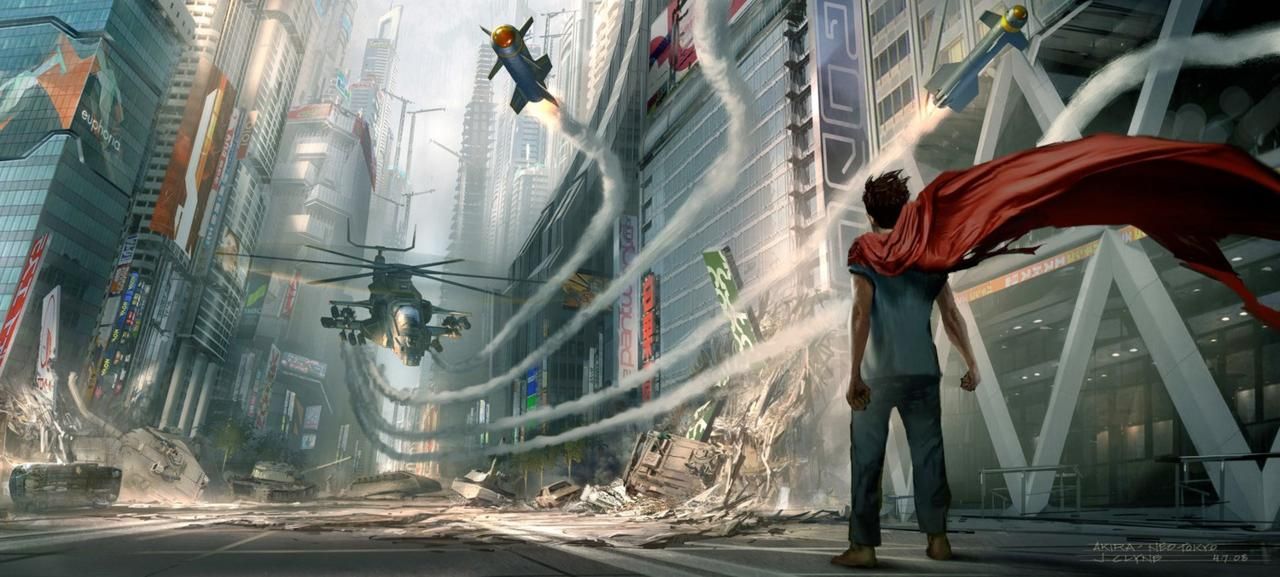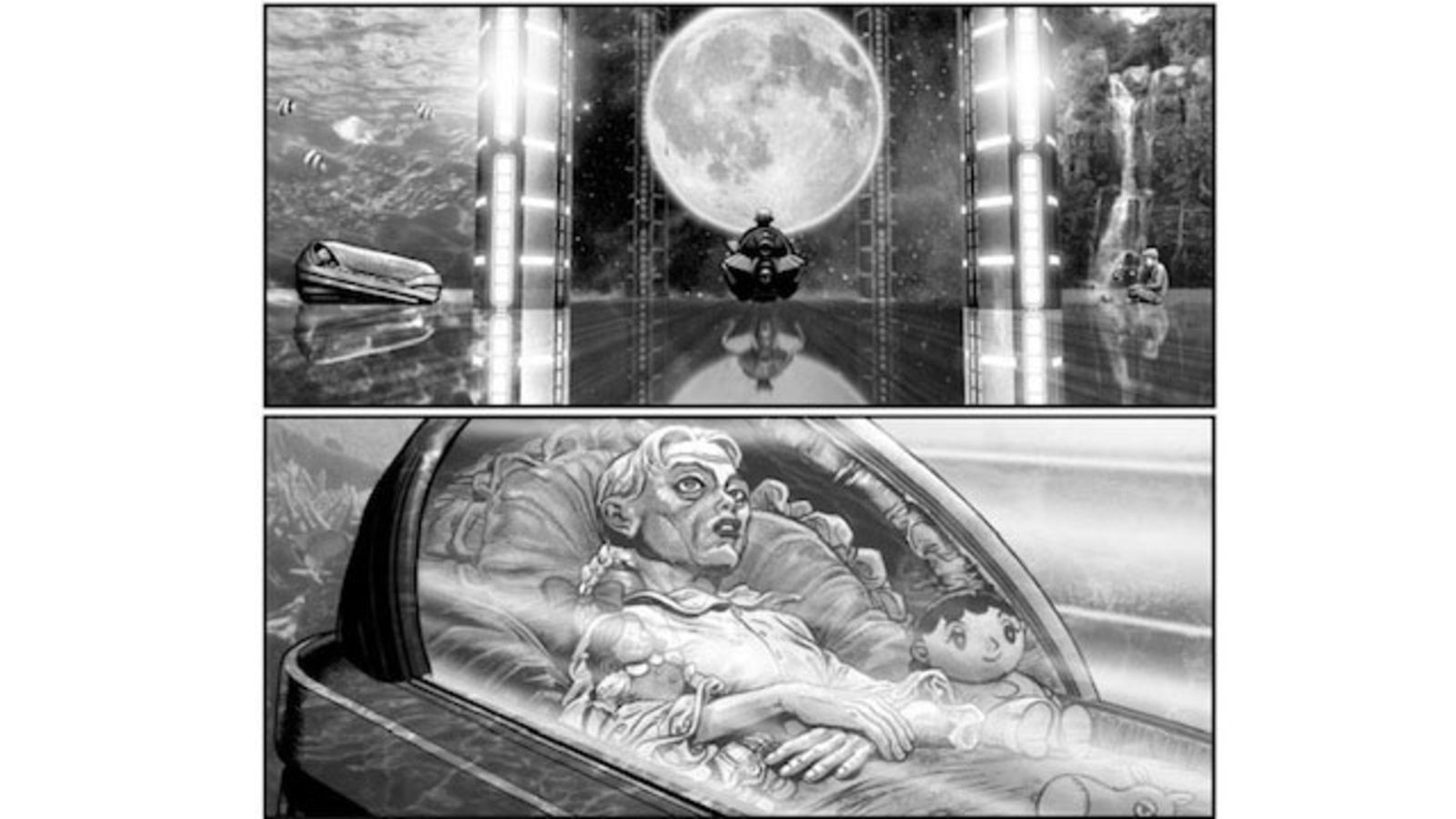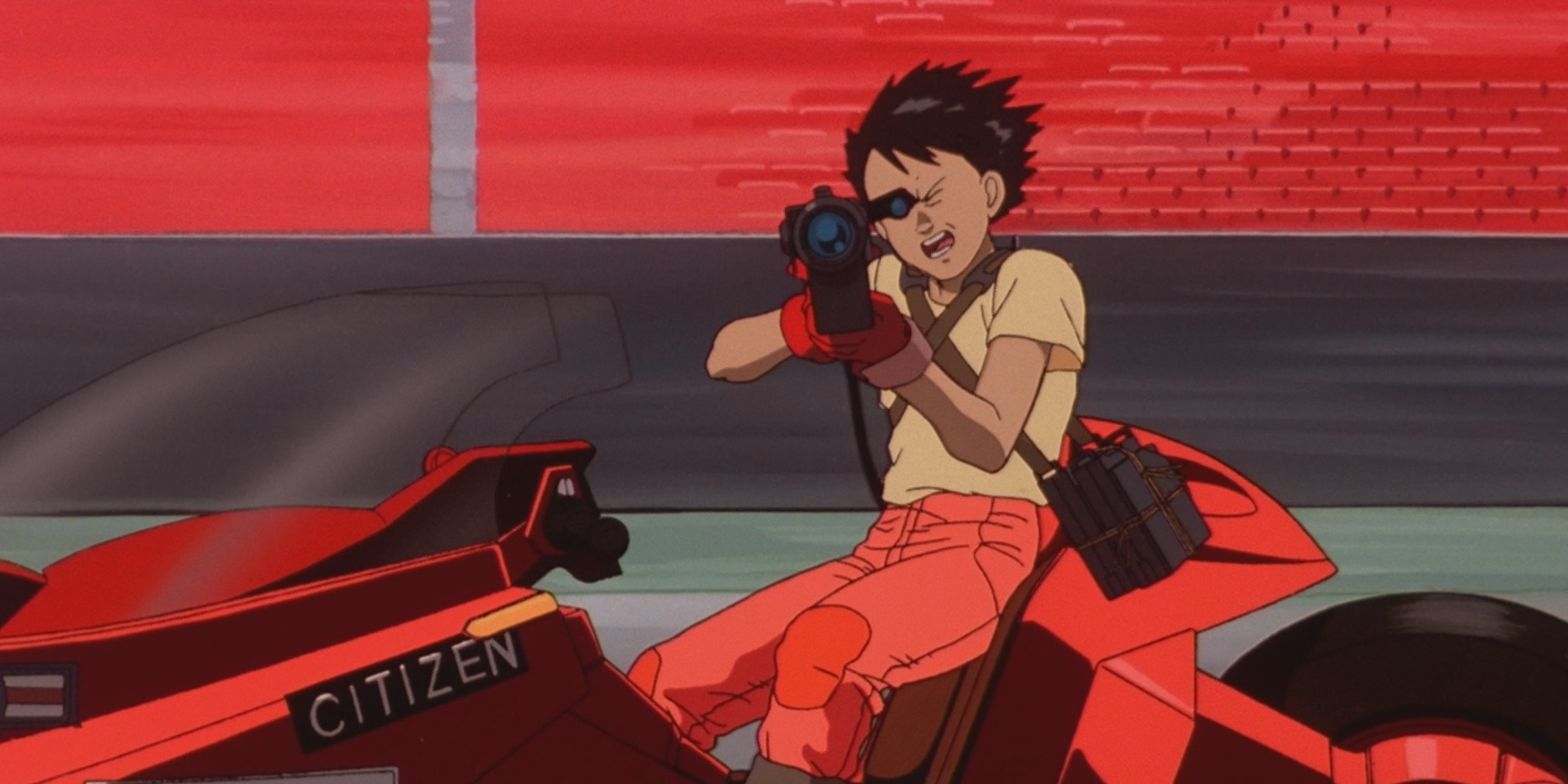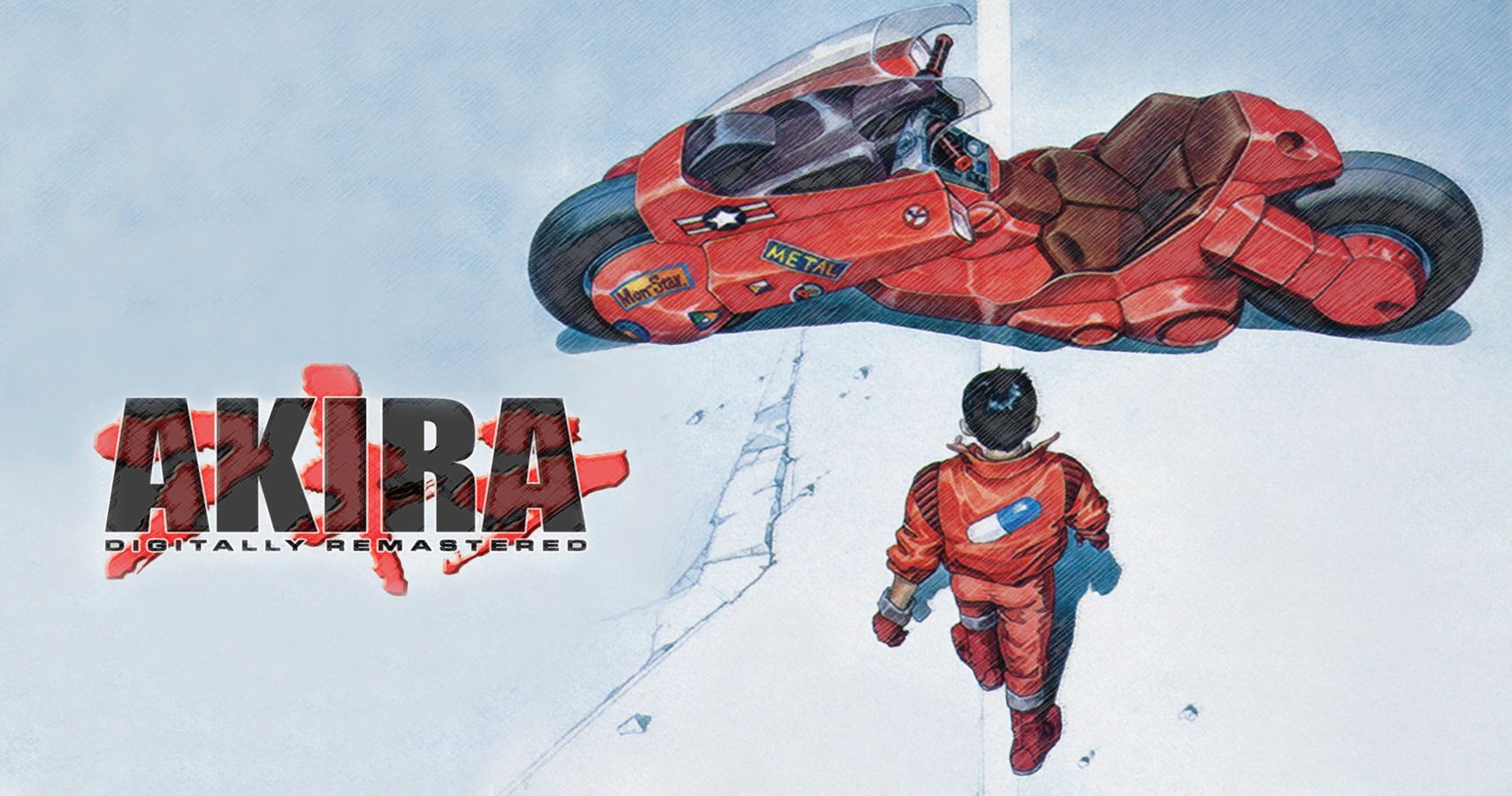Warner Bros. first bought the rights to a live-action Akira film back in 2002. Every year, the studio releases a new announcement concerning a new director for the project. It's so reliable a metric you can set your clocks to it. The newest big name director who made that big movie, whatever that movie was, will be announced to direct Akira. Films based on anime that started production after Akira's initial announcement (Alita: Battle Angel, Ghost in the Shell) have ended production before a single frame of footage has been shot for Akira.It's clear to see why. Akira, arguably one of the greatest science fiction films ever, showed the world that animation could tell mature stories. Of course studios would want to remake it.So, why haven't they?
Peters and Norrington
Jon Peters acquired Akira for Warner Bros. back in 2002. If the name "Jon Peters" sounds familiar, that's because you might've watched Kevin Smith talk about Superman Lives and how an eccentric Hollywood producer insisted Superman had to fight a giant spider in the film. Yeah. That guy.
The first creative team to tackle Akira was Stephen Norrington, who worked on Blade. Norrington claimed his film "preserves the tone, the visual and the epic scope of the original whilst telling a somewhat more accessible story (to Western audiences)."
And, indeed, when details emerged that Norrington planned on turning Kaneda and Testsuo (childhood friends) into brothers, it was clear that, while Norrington might've wanted to preserve the tone, he sure didn't care about the story.
Norrington planned to start filming Akira once his next film came out: The League of Extraordinary Gentlemen. It flopped. Norrington then left the project for undisclosed reasons.
Enthusiasm for the project died. Jon Peters was unceremoniously dropped from the project, leaving a new producer to enter.
Leonardo DiCaprio
Akira looked dead when Leonardi DiCaprio came on the scene.
DiCaprio, at the time, was acquiring new projects for his production company, Appian Way. Akira was a film DiCaprio latched onto, and, ever since, has been aggressively trying to get made.
DiCaprio's first director was Ruairi Robinson. Robinson was known primarily for short films, such as Fifty Percent Gray (nominated for an Academy Award). His pitch for Akira involved turning the film into a two-parter based on the manga, with each film covering roughly 50% of the manga.
Gary Whitta was hired to draft the script, which he eventually described after both he and Robinson left the project.
"Manhattan became Japanese sovereign territory as New Tokyo, with 10 million Japanese living there; it just happened to be located on the east coast of the United States. I thought it was an interesting way to fuse eastern and western cultures in the movie, and allow a mix of actors from both, rather than just ‘whitewashing’ the film, which is what I think a lot of people were anticipating."
Notice a pattern yet?
Both Whitta and Norrington, when describing their projects, said they wanted to make the film accessible to Western audiences by stripping the film of Japanese qualities. While it might seem ludicrous trying to remove diverse elements from a film in today's era, just remember that Hollywood had a long string of successful remakes of Asian films without any Asian actors, like The Ring, The Grudge and The Departed.
Robinson posted a heaping of production art, which you can see here. And, while Robinson didn't finish the film, he did direct The Last Days on Mars. He fared better than most.
The Hughes Brothers
After Robinson left, Allen and Albert Hughes took the directing chair, though Allen left the project early on. The Hughes brothers hired Mark Fergus, Hawk Ostby and Albert Torres to rewrite Whitta's script.
Now, the first warning sign was when they announced they intended to make the film PG-13. Akira is an R-rated property, but they wanted the film to appeal to a broader audience. That should've been red flag number one.
But then the script leaked.
This script was nothing like Akira. None of the characters were like their originals (especially the female lead, Kei, who many thought was now written like a misogynistic caricature). 9/11 references filled the script. Akira, who never appears in the original film, is now a creepy horror movie character.
Oh, and there was whitewashing. Lots of whitewashing.
Hughes left the project.
The Scramble
Warner Brothers tried to get a new director. For the next several years, a hodge-podge of directors would enter and leave the project. Tommy Lee Edwarts (Book of Eli), Jaume Collet-Serra (Orphan), George Miller (the Mad Max franchise), Justin Lin (Star Trek Beyond)Â and Jordan Peele either dropped or rejected the project, one after the other.
In particular, Collet-Serra had this to say:
"Nobody’s interesting [in the anime]. Tetsuo’s interesting because weird s*** happens to him, and Kaneda is so two-dimensional. That’s part of the Japanese culture, they never have strong characters. They’re used as a way to move the other philosophy forward."
Warner Bros. couldn't find an enthusiastic director who even liked the original anime.
To make matters worse, many of their reasons for rejecting the project dealt with a particularly uncomfortable reason: They didn't like how Japanese Akira was.
Whitewashing
Many of the issues throughout had to do with cultural backlash. Whenever news came out about the project, the response was uniform -- keep the cast Japanese. Keep it as authentic to the original as possible. This outcry only became more obvious with each passing year as the desire for diverse representation became stronger.
Creative changes are inevitable. However, Akira is a story that takes place in Japan and draws from Japanese culture and history. To make it a 9/11 metaphor is disingenuous to the original narrative. It robs Akira of what makes it unique.
A noteworthy critic of Akira and the various creative decisions surrounding it was Star Trek alumn George Takei, who had this to say:
Without the release of two movies, Warner Bros. might not have listened to critics. Those films are Black Panther and Ghost in the Shell. The former embraced cultural diversity, to its success. The latter whitewashed several key characters, and, justifiably, was criticized.
This might have something to do with why Warner has gone with Taika Waititi, who has gone on the record that he intends on staying true to Akira's cultural roots. Waititi also proved his own success with Thor: Ragnorak, another incredibly off-kilter sci-fi film. And, unlike prior starts and stalls, they aren't just talking about the film. They've received tax allocations and filming locations.
It remains to be seen if Waititi's Akira will be worth 17 years of development hell. However, what is clear is that, over time, the film industry has learned from its mistakes. Hopefully.

